Global Partnership ProjectProject Report
CHAD Laos Project Report 2
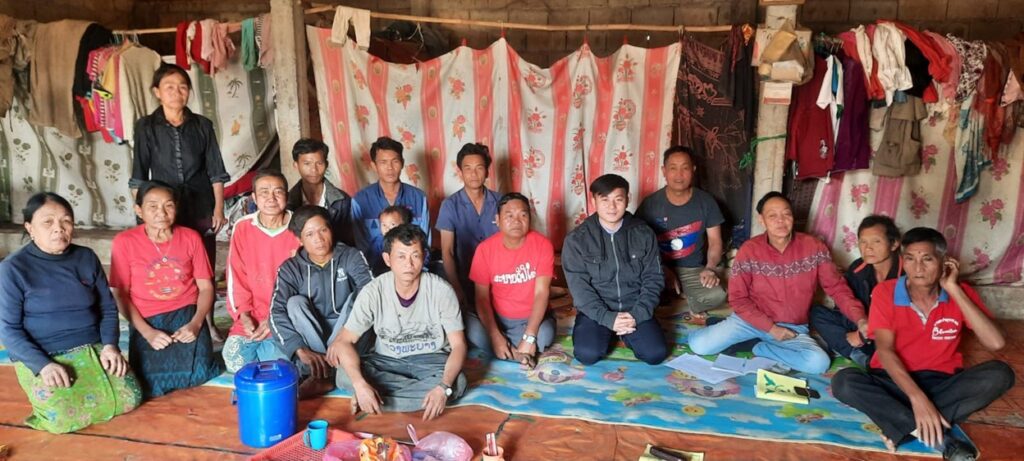
Community Members who participate in the Project
Wesley Zaidan, in collaboration with CHAD, the Mission Initiative Office, and local communities, is implementing a 5-year project in Vietnam and Laos.
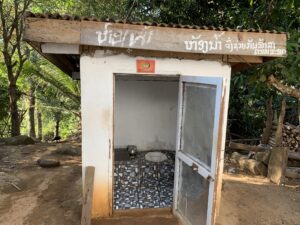
A toilet that installed through the project
In its third year, the CHAD Laos project faced temporary setbacks due to the impact of the COVID-19 pandemic and government requirements (as partner organizations in Laos are required to register as non-profit organizations). During this period, online training has been continued, but several projects, such as the installation of sanitary toilets and livestock rearing, had to be suspended.
However, considering that the Lao government has prioritized the establishment of sanitary toilets by 2025, the village chiefs in the supported areas have shown a significant understanding and, with their cooperation, the CHAD project was able to resume.
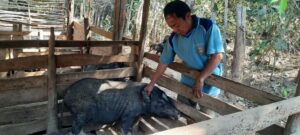
pig farming
Furthermore, there have been challenges such as the inability to proceed with the project within the existing budget due to the soaring prices of materials. Additionally, issues have arisen, such as the death of male livestock due to diseases, resulting in the inability to breed livestock. However, the community is cooperating and actively participating in the project.
A story by Ms. Unshi
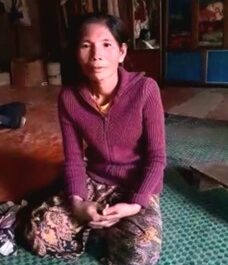
Ms. Unshi sharing her story
According to Ms. Unsi, who lives in Hoikan Village, this village used to be abundant in nature, with plentiful water from forests and mountain sources. However, deforestation for land cultivation and slash-and-burn agriculture for self-sufficiency caused the climate to change. Deforestation continued for many years, resulting in the disappearance of forests and making life extremely harsh during the dry season without water. The CHAD Laos project has supported the construction of wells, particularly improving the lives of women, for which they are very grateful.
Mr. Rian's story
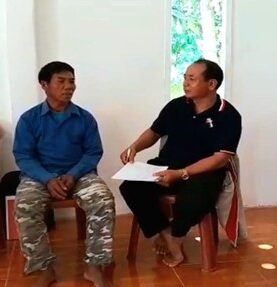
A staff member listening to Mr. Rian
Mr. Rian, who lives in Naler Village, says that with the start of the CHAD project, their lives have improved through the installation of sanitary toilets, livestock rearing, and the establishment of ponds for fish farming. The installation of sanitary toilets, in particular, has dramatically improved their lives. Previously, it was inconvenient to use the toilet during rainy weather, and there were concerns about being observed by others or being bitten by mosquitoes. Now, even on rainy days or at night, they can easily access the toilet without having to search for its location, which has been a great relief for them.
